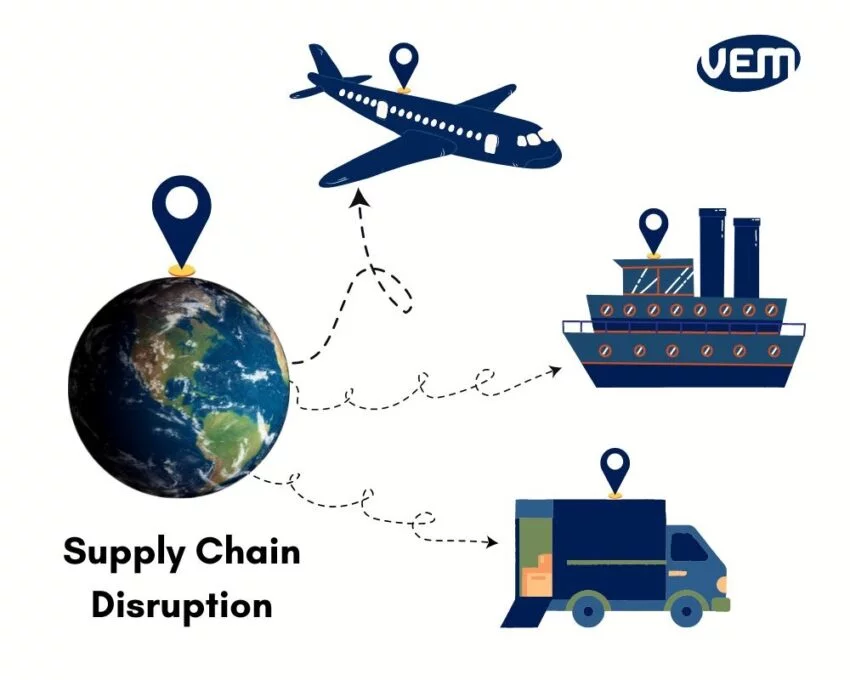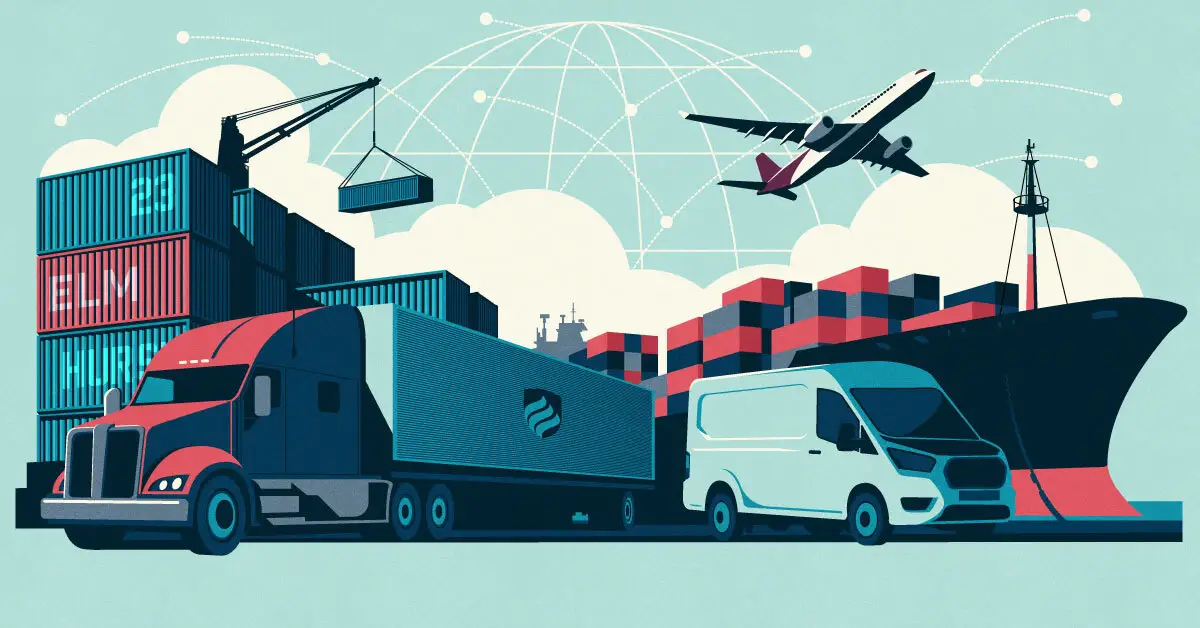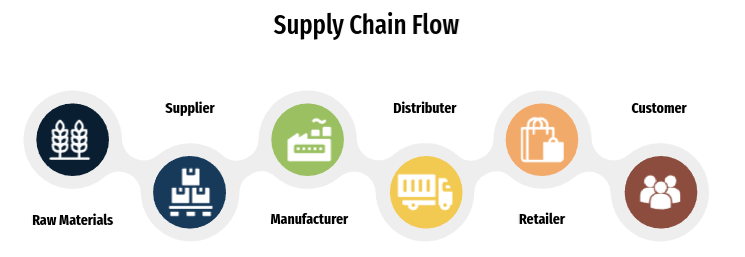Supply Chain Disruptions Due to Geopolitics: Navigating Uncharted Waters
Picture your goods trapped in a port far away. A storm brews, but it’s not the weather—it’s politics blocking your flow. You’re stuck in the thick of Supply Chain Disruptions Due to Geopolitics, a tough new seascape we all must sail. Here’s your map through the chaos. We’ll decode the clash of nations, dig up hidden risks, and uncover ways to steady your trade ship. Gear up to dance with trade embargoes and dodge the bullets of policy shifts. It’s time to build a supply chain tough enough to outlast political tempests. Let’s grab the wheel, chart the course for resilience, and anchor deep in the harbor of foresight.
Understanding Geopolitical Conflicts and Trade Implications
Identifying Key Geopolitical Risks in Global Sourcing
When we buy things from around the world, it’s like a treasure hunt. But it’s not always smooth sailing. Countries can clash or have tough laws that make trading harder. These are called geopolitical risks. They can throw a wrench in how we get goods and can shake up the whole buying-and-selling game. Let’s dig into this challenge.
What are geopolitical risks in procurement?
These risks are like storm clouds for buying goods. It means when countries don’t get along or change their rules quickly, it can cause big problems in getting what businesses need.
Trade embargoes and sanctions are big players in this risky game. They can stop goods from flowing and cause material shortages. Imagine you run a toy shop and need parts from abroad. If the country making those parts gets hit with an embargo, you’re stuck. No parts mean no toys to sell.
Mitigating the Impact of Trade Embargoes on Supply Chains
Now, what can we do when trade bans happen? Don’t worry, there are smart moves to make. You can spread your bets by getting supplies from different places. That’s like not putting all your eggs in one basket. So if one country stops sending stuff, you’ve got a backup plan.
How can businesses deal with the impact of trade embargoes on supply chains?
The trick is to have friends in many places. If one country’s doors close, you turn to another. Companies work hard to build relationships in different countries, so they have more options. This means when one country says “no more trade,” they still have other countries to get goods from.
To stay ahead of the game, companies keep an eye on news about international relations and logistics. Knowing what’s happening in the world helps them plan better. And they make sure to understand all the complex trade laws. That way, they don’t get caught off guard.
Sometimes, countries can also get into tariff wars. That’s when they keep raising taxes on each other’s goods. It’s like a tug of war but with money! Companies have to be clever and might make things in different places to dodge these high taxes.
In the end, sticking your head in the sand won’t help. The best plan is to stay sharp, know the risks outside, and have backup plans. This means always looking for new places to get stuff and making sure you’re not trapped when problems hit. It’s not easy, but it’s how smart companies keep making and selling their goods, even when the world gets shaky.
The Influence of Political Instability on International Logistics
Dealing with Sanctions and Their Effects on Global Trade
When a country faces sanctions, getting goods becomes tough. Shops may run low on stuff because sanctions block trade. It’s like a big STOP sign on products countries want to trade with each other. Sometimes, other countries won’t sell things or buy goods from the country with sanctions.
So, if a country can’t buy from or sell to others, it affects everyone. Think of it as a big game of tag, and one player is in time-out. It’s not fun for anyone. Big companies can’t get parts they need to make things, and prices go up. This hits our wallets too.
Now, what can companies do? They have to be smart. They look for new friends, meaning new countries to trade with. This can be hard and takes time. But it’s like finding a new teammate when one can’t play. They have to work fast to keep making and selling their products.
Navigating Import-Export Regulations Amid Shifting Policies
There are many rules when countries trade with each other. These rules change a lot, like how the weather changes. If one country gets upset with another, they may make stricter rules. This can slow down the trade between them. It’s like when parents ground you, and you can’t go out to play.
For businesses, it’s a big deal. They need to move their goods across borders to sell them. Tough rules can cause delays. Imagine waiting for your favorite toy but it can’t come because of new rules. That’s what businesses deal with.
Now, how can businesses keep going? They need to know the rules well. If they don’t, they might make mistakes and get in trouble. Just like doing homework, they need to do their research. Plus, they need backup plans. If one way of trading gets blocked, they need another.
In both situations, being ready is key. Companies always try to stay ahead, planning for what might happen. It’s just like when you pack an umbrella because it might rain. Businesses think about what to do if things get tough so they can keep going no matter what.
Building Resilient Supply Networks in a Volatile World
Strategies for Diversifying Supply Chains
Strong supply chains need more than one source. This means not relying on just one place for your goods. Imagine only having one bakery for bread and it closes. You’d wish you knew a second place. We make sure we have many sources. This helps when trade gets tough. Tough trade can happen when countries fight or disagree. It can be about power or stuff they want.
So, how do you keep your supplies coming when there’s a fight? Go wide. Find sources in many places. This is smart because if one place stops trading, you have others to rely on. Let’s say one country makes the best steel but they start a trade fight. If you have a source in another place, you won’t run out of steel. This is how we stay strong even when trade wars are loud.
Diversifying also means thinking about what might go wrong. It’s like having an extra tire for your car. What are the risks? Could new rules make things slow? What about big delays at the border? These are what we call vulnerabilities. We keep an eye on these. We also talk to people who know the news in these places. This helps us to plan better.
Incorporating Geopolitical Intelligence into Business Planning
Now, let’s get into using smart ideas to make better plans. This is where geopolitical intelligence comes in. It’s about knowing the news before it’s news. Imagine a game of chess. You try to guess what the other player will do next. If you guess right, you can win.
In business, when you know the news early, you can change your plans to make sure you win. But this isn’t a game – it’s real, and it’s about getting things from one country to another without trouble.
We look at the world like a map with different stories. We ask: What’s happening in the countries we get supplies from? Are leaders happy or mad? Will there be new rules that make trade hard? Knowing this helps us a lot.
For example, if a country is about to have a big fight about who’s in charge, we brace ourselves. This could mean finding a new place to get things from. Or maybe keeping more stuff in stock just in case things slow down.
This smart way of planning takes practice. You need to understand history and what’s going on now. You also have to be ready for sudden changes. It’s not easy, but it can be a real game-changer.
In the end, when we use all this know-how, we make our supply chains tough. They can take on the world’s uncertainties. This means that whatever happens across the seas, we can keep our promises to you. By treating information as valuable tools, the chances of being caught off guard slim down. Making sure we have more than one plan keeps us sailing smooth, even when the trade seas get rough.
Crisis Management and Future-Proofing Supply Chains
Developing Contingency Plans for Political Crisis Scenarios
When a political crisis hits, our supply chains feel it fast. Imagine a country suddenly facing unrest. Quickly, goods stop flowing as usual. Borders may shut. Getting stuff from Point A to B gets hard. This is where we step in, with a plan to tackle such chaos.
We start by looking at high-risk areas for our goods. No place is the same. Some have more risk, and some less. We check what could go wrong and make ‘what if’ plans. Let’s say a trade barrier pops up—we’ve got a backup supplier ready.
Next, we keep our ears to the ground. We follow news on international relations and logistics. We watch shifts in political power, disputes, and new laws. When we see trouble brew, we act. We can swap routes, use different ports, or tap into new markets. It’s all about staying nimble.
We also talk to folks who know the lay of the land. Local experts can give us the lowdown on the latest in resource nationalism or tariff wars. They help us see not just the big picture, but the details too.
Remember, we’re not just protecting goods; we’re protecting people. Those who make, move, and rely on our products need us to be ready. We are the shield that guards the flow of goods in troubled times.
Enhancing Supply Chain Security in the Face of Geopolitical Uncertainty
To keep our supply chains safe, we dig into geopolitical risks in procurement. We ask, will sanctions affect our plans? What’s going on with cybersecurity threats? We need a clear view to stay safe.
We work with the laws of the land, wherever we do business. We stay sharp on import-export regulations. We know rules can change. Being ready for this is key. It’s like a game of chess—you need to think ahead.
We use what we learn to strengthen our supply chain security. If there’s a risk of cyber attacks, we boost our defenses. We make sure info and goods are safe as they travel across borders. We check and double-check our sources and paths.
One smart move is spreading out where we get stuff from. We call this diversifying supply chains. It’s like not putting all your eggs in one basket. If one route hits a snag, we’ve got another to take its place. Risk goes down, our confidence goes up.
We use all we know to keep things smooth. We spot where the next problem could spring up. We prep and plan, and we share this know-how. We can’t stop crises, but we can steer through them. Like captains on the sea, we navigate the waves of change.
Staying keen on international sourcing risks and geopolitics matters. It’s our map and compass in uncharted waters. With a good plan, solid relationships, and savvy moves, we can keep our goods—and promises—on track.
In this blog, we’ve dived into the choppy waters of global trade amid political unrest. Starting with the risks tied to geopolitics in sourcing, we’ve seen how trade embargoes can rattle supply chains. We then looked at how sanctions shape trade and the hoops businesses jump through with changing import-export rules.
We’ve also learned to build strong supply networks for when trouble hits. By spreading out where we get stuff and knowing the political game, we can make smart plans. And when a crisis strikes, having a backup plan and securing our supply lines keeps us on track.
My final thoughts? Keeping an eye on world politics is key for trade. Get smart about your supply chain, plan for the storm, and you’ll ride out any crisis that comes. Stay nimble, stay informed, and your business will not just survive but thrive in this wild, changing world.
Q&A :
How do supply chain disruptions occur because of geopolitical events?
Geopolitical events, such as trade disputes, sanctions, tariffs, wars, and political instability, can cause significant fluctuations in global trade dynamics. These events can lead to unexpected changes in supply and demand, disrupt logistics and transportation routes, and impact the availability of raw materials and labor. Consequently, businesses may face delays, increased costs, and challenges in maintaining steady production and distribution.
What industries are most affected by geopolitical supply chain disruptions?
Industries that heavily rely on global sourcing of raw materials or components, such as the manufacturing, automotive, technology, and energy sectors, are often most vulnerable to geopolitical supply chain disruptions. These industries may encounter material shortages, production holdups, and difficulty in predicting supply needs when geopolitical tensions influence trading practices and international cooperation.
How can companies mitigate the effects of geopolitical supply chain disruptions?
To mitigate the effects of geopolitical supply chain disruptions, companies can implement strategies like diversifying their supplier base, investing in supply chain visibility tools, and increasing on-hand inventory for critical components. Additionally, developing contingency plans, fostering strong relationships with suppliers, and exploring local sourcing options can further enhance supply chain resilience against geopolitical uncertainties.
What role does technology play in managing geopolitical supply chain risks?
Technology plays a crucial role in managing geopolitical supply chain risks by providing companies with real-time data and analytics to monitor supply chain activities closely. Solutions such as AI-driven risk assessment tools, blockchain for increased transparency, and predictive analytics for forecasting potential disruptions can empower businesses to respond proactively to geopolitical challenges and adapt their strategies accordingly.
Can geopolitical supply chain disruptions lead to permanent changes in global trade?
Yes, geopolitical supply chain disruptions can lead to long-term or permanent changes in global trade patterns. As companies and countries seek to reduce their dependence on potentially unstable regions or partners, they may shift towards more resilient supply chain models, like nearshoring or regionalization. These strategic adjustments can redefine trade relationships, influence global economic policies, and encourage the development of new international trade agreements.
